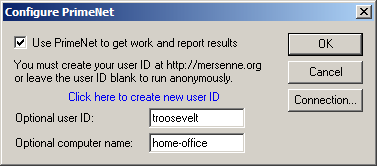| Windows: 64-bit | 30.19b20 | 2024-06-02 | 8.4MB | p95v3019b20.win64.zip | MD5: 7a4ac1f3ff0045951fe6ad66e36c7929
SHA1: 51a5849e8652b69909cce28f1d5f5697d96c1571
SHA256: d9475f2ff3f4a6a701abc49a86a66126cb48abd10bda6fa87039d98fa8756bca
|
| Windows: 32-bit | 30.19b20 | 2024-06-02 | 7.1MB | p95v3019b20.win32.zip | MD5: 52e4620151b6992c8139b57e55f416bd
SHA1: 2824aaf9afcdb7bcdc3f502624292eb701229e96
SHA256: a77c9297bd80dffcb7e2e7e6e89db674126c06a2fe8e769dcec06da2e66e8516
|
| Linux: 64-bit | 30.19b20 | 2024-06-02 | 5.6MB | p95v3019b20.linux64.tar.gz | MD5: 83481a73b8d6a3322d1f710bb7597b29
SHA1: da9917594bcf4bb47ac0852f4edae669a08072e2
SHA256: 4ce2377e03deb4cf189523136e26401ba08f67857a128e420dd030d00cdca601
|
| Linux: 32-bit | 30.19b20 | 2024-06-02 | 4.5MB | p95v3019b20.linux32.tar.gz | MD5: 1dd02a33c2a05b2bdaedfa0e734d8251
SHA1: 1d14ca11958c5a2323322adfd6bcd5f2603f1fd5
SHA256: 2b7e5d8447246cbb4fabebfd8599cee16a407e659b3bb5142314023e9f0d11e1
|
| Mac OS X | 30.19b20 | 2024-06-02 | 4.3MB | p95v3019b20.MacOSX.tar.gz | Command line version, requires Intel CPU, Mac OS X 10.9 (Mavericks) or later MD5: 820167eeea2b5468a6a16a08ad3b26ff
SHA1: 2dc404c679a0e8feeb3afdc565e10086faeb3fc9
SHA256: 3e5a05b1849b501e35f9def0b6c7253a13a3baafa054aa1c69ba41c1d3d3326a
|
| FreeBSD 12: 64-bit | 30.19b20 | 2024-06-02 | 5.9MB | p95v3019b20.FreeBSD12-64.tar.gz | Requires FreeBSD 12.0 MD5: 90d4bbd391784808a9e171ea75a45574
SHA1: 586028811b417b9a7cb4f323b9fad5d25823aa46
SHA256: 156f64014cb4ea280966b24b979286c03c5cfff82b3407361bcd701457af87c6
|
| Windows Service: 64-bit | 30.19b20 | 2024-06-02 | 6.7MB | p95v3019b20.win64.service.zip | This is for administrators that want the extra security of running a traditional GUI-less service. You will still need to download the standard windows executable to configure the client. This program is for Windows Server experts only. MD5: d0ba13acc52ee58913be4501aa1d77ee
SHA1: 18898748a375ef5d65e270a36b8f9cb391903873
SHA256: dccf1c6f35e04bc16f01acdff1567371d3b14898950eafc2ae303cb09cd301dd
|
| Windows Service: 32-bit | 30.19b20 | 2024-06-02 | 5.7MB | p95v3019b20.win32.service.zip | This is for administrators that want the extra security of running a traditional GUI-less service. You will still need to download the standard windows executable to configure the client. This program is for Windows Server experts only. MD5: a60ea8f345ccf4b6c759cf320ab47734
SHA1: 0808e8f50d9f758e1c7087b9aa4d8dd7b3693b34
SHA256: fca3b804b54c31f5d28fef76f728722afea617eb9c818d6dd1878c9bb8b9b0bf
|
| Source code | 30.19b21 | 2024-09-14 | 37.7MB | p95v3019b21.source.zip | for Windows, Linux, FreeBSD, and Mac OS X MD5: b94656a5be4d11daacc13850cd3a4ccc
SHA1: 76cabdcbe4bd3d0d14faa4f0cfd674757d872928
SHA256: bdc843a547a6f91dc67004a3efbcd99858af7db075ecd77b7188b23e5ac2ce2a
|
If you have a recent discrete videocard powered by an AMD or NVIDIA GPU, it's potentially more powerful than your CPU at prime-testing (or factoring) Mersenne numbers. GPU Software Some Mersenne-related software has been written for NVIDIA and AMD GPUs, including: All GPU software communicates with PrimeNet using AutoPrimeNet. See the Quick Start Guide for setup instructions. |
| Legacy Operating Systems |
| Mac OS X, GUI version | 29.8b7 | 2020-03-19 | 5.0MB | p95v298b7.MacOSX.tar.gz | Requires Intel CPU, Mac OS X 10.9 (Mavericks) or later MD5: 5a110a0a5210fd10d7b8da0ce9ff43cf
SHA1: 5a93d5f45dadd09b60520176f9abaead7c22d356
SHA256: 3a0e228ea35bd96824163c7f5ab8e21502a33ae647752de3e5aab0f88fc7c52e
|
Mac OS X
pre-Mavericks | 27.9 | 2012-12-12 | 5.1MB | p95v279.MacOSX.zip | Requires Mac OS X 10.3 to 10.8 and an Intel CPU. MD5: 0390ae2ff3d4a7082927482d82e62f59
SHA1: 5f08298fb4aff5dbbab3d072519cd80ecce576c1
SHA256: c44e3bdae50d3360ec58a0efff47ccfdff5bdc5d31f669e2761da4737d5560d8
|
| FreeBSD 11+: 64-bit | 30.7b9 | 2021-11-15 | 7.1MB | p95v307b9.FreeBSD11-64.tar.gz | Requires FreeBSD 11.0 MD5: a88718f5d985c3a0e0f76323969ffcaf
SHA1: 767e890fb914e5a81b0ee6c0df9b4624408caf4a
SHA256: 750a36bce52d33db7c6765ea454d12a25aea0b967b99642d3847cb87c7e844a5
|
| FreeBSD 10: 64-bit | 28.7 | 2015-08-10 | 5.3MB | p95v287.FreeBSD10-64.tar.gz | Requires FreeBSD 10.0 MD5: 5dd21b471946fdcb4858a9fa50fe718b
SHA1: 5143e7e355f8fdbce5b3629cc9cd8d4e9bd04592
SHA256: 0a04bb01524e7c10edce501f57e902b3ce9f82cda0e39aaae8bfaa1af95ab416
|
| FreeBSD 8: 64-bit | 27.9 | 2012-12-12 | 4.5MB | p95v279.FreeBSD64.tar.gz | Requires FreeBSD 8.0. May work on later versions. MD5: c6b1c84a79bb1b2e8366a81ddea0087c
SHA1: 0f2972edb728a017b3bfe7da5cb7fddad7ed785c
SHA256: 5ab9feddeb53fca9d9684119fae7ac271de3d85a4dd3c3f1fd26ab97ff71c05a
|
| FreeBSD 7: 32-bit | 26.6 | 2011-04-08 | 4.0MB | mprime266-FreeBSD.tar.gz | Requires FreeBSD 7.0. May work on later versions. MD5: d7e78a458b0c7ebbd6db57ff08835739
SHA1: b283278dea4887494ebb7357992981ece8df3e08
SHA256: d4c2c044cfa45311dd7f2c41574f59a0519c989fd6e0ca723505dea12b2ff1fd
|
| Windows XP: 32-bit | 29.8b6 | 2019-08-18 | 5.4MB | p95v298b6.win32.zip | MD5: 4f7d1cc7904d5d9ccb26c8c00b6470a9
SHA1: 54dd8f9b4692d7a878626ac993562b83cb5587fb
SHA256: cdd32b4c358869d3f588ae430bc67d9e88a5a69506002f864adac3c477c9202a
|
| non-x86 OS |
Unix and non-x86 users should check out Ernst Mayer's Mlucas page
.
|



 Start the program! Linux and FreeBSD users should run the program from the command line with a -m switch, i.e.
Start the program! Linux and FreeBSD users should run the program from the command line with a -m switch, i.e.